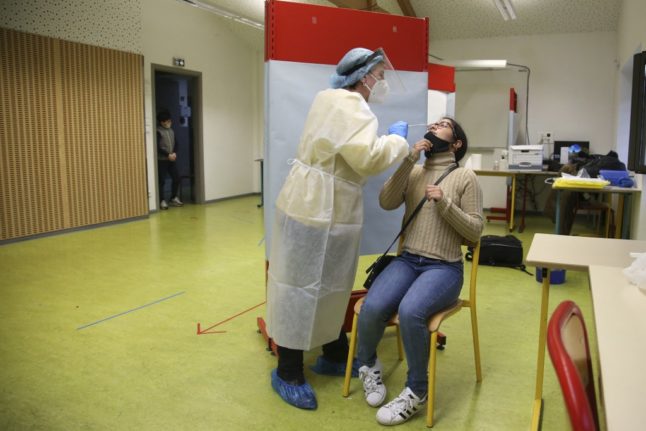Spain, Italy, the UK, South Korea, Japan, India, Malaysia, Taiwan, Israel and the US have also said they would require proof of a negative test for travellers leaving China.
Despite its hospitals and morgues being overwhelmed – and international concern over the low official figures on infections and deaths there – China insisted on Friday that it had been transparent in sharing its Covid-19 data.
Starting on Sunday, January 1st, all arrivals into France from China – whether on a direct flight or connecting flight – will need to show a negative Covid test (PCR or antigen) taken within 48 hours.
Travellers will also be required to take a PCR test on arrival in France, while masks will again be compulsory on direct flights from China.
🔴 La France annonce plusieurs mesures visant les passagers en provenance de #Chine :
• test négatif de moins de 48h obligatoire avant le départ
• test PCR aléatoire à l'arrivée en France, avec séquençage s'il est positif
• masque obligatoire dans les vols directs1/n pic.twitter.com/tXmFqOAKgp
— Nicolas Berrod (@nicolasberrod) December 30, 2022
At present, testing is only required for arrivals from China – travellers from all other nations can enter France without showing either a Covid test or proof of vaccination, while masks are no longer compulsory, although they are “strongly recommended” on public transport and in crowded spaces.
On Wednesday, a senior US health official said Beijing had provided only limited data to global databases about variants circulating in China, and its testing and reporting on new cases had diminished.
On Thursday, World Health Organization chief Tedros Adhanom Ghebreyesus urged China to be more forthcoming, saying it was “understandable” that some countries had introduced restrictions in response to its Covid-19 surge.
But on Friday, Chinese foreign ministry spokesman Wang Wenbin insisted: “Since the outbreak of the epidemic, China has been sharing relevant information and data with the international community, including WHO, in an open and transparent manner.
“We shared the sequence of the new coronavirus at the first instance, thus making important contributions to the development of relevant vaccines (and) drugs in other countries.”
A national disease control body in China said there were about 5,500 new local cases and one death Friday but, with the end of mass testing and the narrowing of criteria for what counts as a Covid fatality, those numbers are no longer believed to reflect reality.
In Beijing, Wang argued that health experts in several countries had decided there was no need to impose entry restrictions on travellers from China.
The European Union’s infectious disease agency (ECDC) said on Thursday such restrictions were not warranted for the moment, due to the high levels of immunity in the EU and European Economic Area.
Germany’s Health Minister Karl Lauterbach did argue for a coordinated EU-wide system to monitor variants across European airports.
“We need a European solution,” he said.
A coordinated approach would make it easier to detect new variants of the coronavirus quickly and take appropriate measures, he added.
China said this month it would end mandatory quarantine for people arriving in the country and that it had abandoned strict measures to contain the virus.
The world’s most populous country will downgrade its management of Covid-19 from January 8th, treating it as a Class B infection rather than a more serious Class A.



 Please whitelist us to continue reading.
Please whitelist us to continue reading.
Member comments